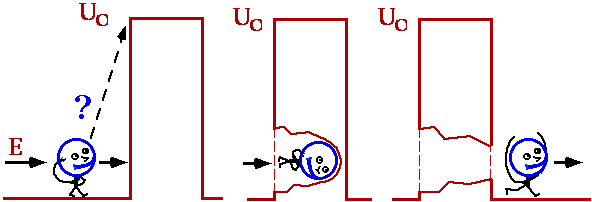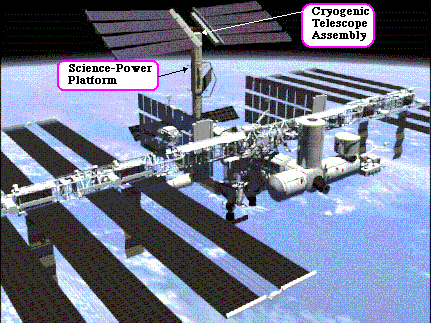


From quantum tunneling to the International Space Station
Course FTF120 for F4/Master, Ip3 2000/2001 (3 points)
Schedule: Tuesdays: 13.15- 15.00 F6306(A820) - lecture 15.15-17.00
Exercises F6306/A604
Thursdays: 8-9.45 - lecture (odd weeks), exercises (even weeks)
A820; 10.00-11.45 Exercises (computer)
Course organization: The course has three parts: (I) Lectures (ii) Exercises (iii) Project work
Aim and content: The aim of the course is to provide an up-to date overview of the basic concepts of quantum physics and possible applications for supersensitive and precision quantum measurements. The main emphasis will be on: Tunneling in normal metal and superconducting junctions; temperature sensor and electronic microrefrigerator based on SIN tunnel junctions; heat and electrical transport through SN interface; microcalorimeters for measurements from THz to X-ray; Josephson effect and SQUIDs; application for measurements from mHz to THz, voltage standards and digital elements; single electronics; Coulomb blockade and correlated tunneling of electrons and Cooper pairs in time; SET and Bloch oscillations for quantum precision measurements; single electron transistor with subelectron sensitivity; parity effect in superconducting SET transistor; actual applications.
Course literature: Books and articles in scientific journals (will be given during lectures). Lecture notes. Project notes.
Examination will be in the form of an extensive written Project report
Lecturer: Assoc. Professor Leonid Kuzmin (tel. 3608, room 2120, kuzmin@fy.chalmers.se)
Lectrurer assistent: Peter Samuelsson (tel.80-32, pesa@fy.chalmers.se)
First lecture: Tuesday, January 16, 2001 at 13.15 , room F6306
Schedule:
W1-W6 - regular schedule, W7 - project work, presentation
Grades:
3: Project report (compulsory tasks of Exercises)
4: Extended Project report (compulsory tasks +
Applied Quantum Physics at Chalmers University:
Prof . Tord Claeson - experiment (30-40 researchers), Prof. Magnus Willander - experiment
Prof. Göran Wendin - theory, Prof. Mats Jonson - theory
EE department:
Prof. Erik Kollberg - applications (SIS junctions and hot-electron bolometers for radioastronomy)
Prof. Roy Booth - applications (SIS junctions for radioastronomy)